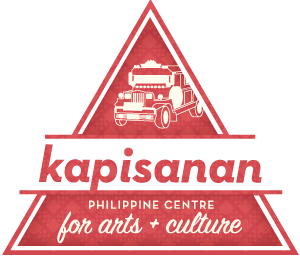This summer, Kapisanan is co-presenting the film El Lado Quieto at the 2022 Images Festival: Slow Edition. Images Festival is an artist-driven festival and a leading presenter of independent film and media culture in dialogue with contemporary art.
Carolina Fusilier & Miko Revereza, video-still from El Lado Quieto (2021), digital video, 70 minutes. Film still courtesy of the artist.
El Lado Quieto, directed by Miko Revereza and Carolina Fusilier, is the festival’s final feature-length film, closing the “ok to rest” suite.
Off the Pacific coast of Mexico, loudspeakers blast welcome messages to a long-abandoned holiday resort. El Lado Quieto is a sensorial journey through colliding mythologies, surveying the afterlife of a pleasure island slowly being engulfed by surrounding nature. This crisp study of life and decay unfolds through the fable of the Siyokoy sea creature, who, carried by strong currents from the Philippines, comes to navigate the spectral remnants of this post-human landscape. (Images Festival)
We’re honoured to support the Images Festival’s work in elevating this Filipinx story through the lens of mythical folklore in film.
The screening will be on Saturday, July 23 8PM at Innis Town Hall theater in Toronto. For more info and tickets go to imagesfestival.com/programs




